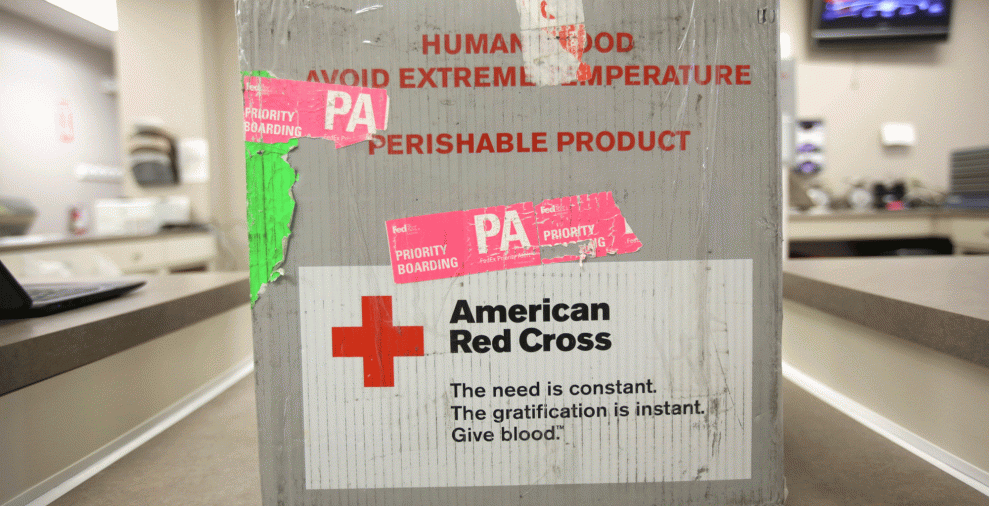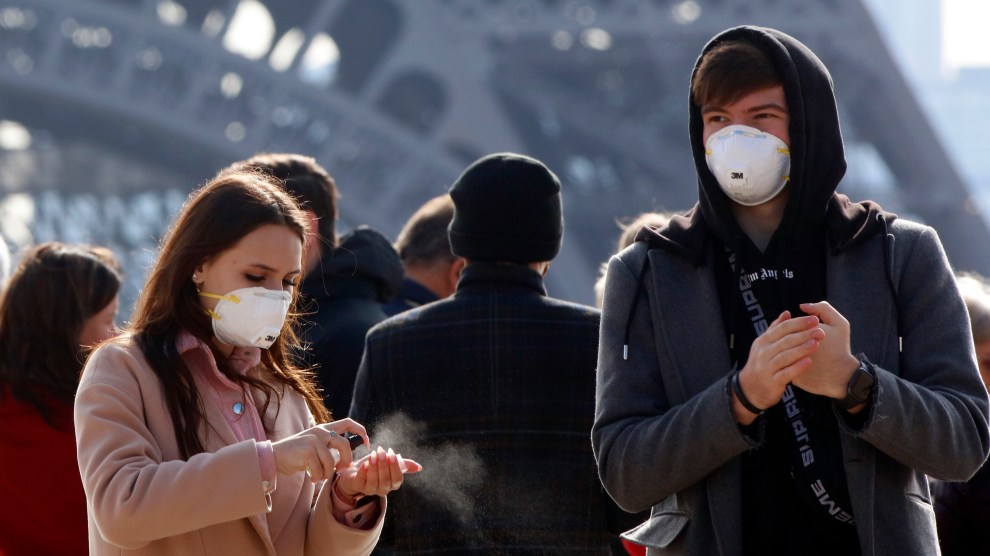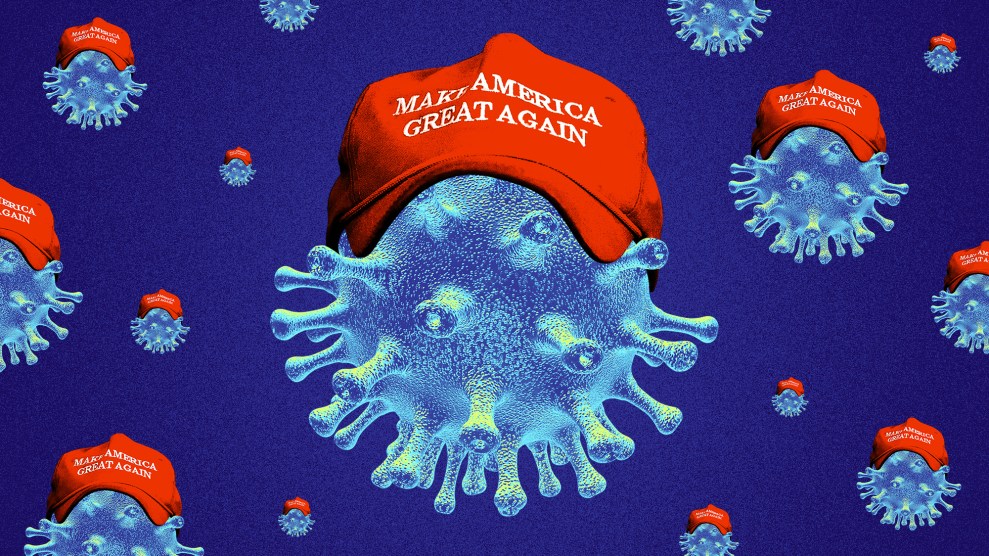
Jake Danna Stevens/The Times-Tribune/AP
Blood donations are plummeting as coronavirus cases continue to rise, raising the alarming possibility of a national blood supply shortage. The resounding message from blood banks: If you’re healthy, give blood now.
America’s Blood Centers, an organization representing independent blood banks, which together collect more than half of the nation’s blood supply, reported Wednesday that a fifth of its members have a single day’s supply of blood or less. An additional quarter of centers have two days or less. Normally, blood centers want to have five days’ supply on hand.
Things are similarly bleak at the Red Cross, the nation’s largest blood collector: In the past 24 hours, Red Cross blood drive cancellations have doubled due to coronavirus concerns, with 125 canceled blood drives—translating to 3,500 uncollected blood donations. Each donation typically helps three people.
“This is an unprecedented situation,” says a Red Cross spokesperson. “We are doing everything we can to prevent a shortage. We are very concerned that fewer eligible donors will be able to give making it extremely difficult for our inventory to recover if we get to shortage levels.”
The dwindling blood supply is coming from fewer donations as more and more people practice social distancing and stay home, and blood drives, which often take place at schools or workplaces, are canceled. Blood centers stress that giving blood remains fundamentally safe for donors; giving blood isn’t akin to a mass gathering. Blood banks already take measures to prevent the spread of infection, but many are taking extra precautions. The Red Cross will check the temperatures of all donors before they enter donation centers, and it has stepped up vigilance around typical protocols, like changing gloves between each donor and disinfecting surfaces. Some mobile blood banks are limiting the number of people on the bus at any given time.
There’s no evidence that the coronavirus is transmittable by blood; today’s coronavirus falls into the same virus family as MERS and SARS, neither of which are transmitted via blood. However, out of an abundance of caution, the Red Cross is requesting that individuals postpone donation if they have the coronavirus or have recently traveled to certain countries with outbreaks. They’re also postponing donations from people who have had “contact with a person who has or is suspected to have the virus”—which is tricky, given how widespread the virus is expected to become, and that those with mild cases may not present symptoms.
The bottom line: “We really only want healthy people at a donor center,” says Dr. Claudia Cohn, chief medical officer of the American Association of Blood Banks, the industry’s primary umbrella organization. If someone starts to exhibit symptoms in the days after donating blood, they can call the blood bank, which can trigger a recall.
Making matters worse is that the typical measures to ameliorate blood shortages simply won’t work in the current environment. Usually when there’s a local shortage of blood because of, say, a natural disaster or a mass shooting, other regions step up to fill in the supply. The challenge with the coronavirus is that it’s everywhere, and likely will be for a long time. “There are going to be very few centers that have that excess of capacity,” says Eduardo Nunes, AABB’s vice president of quality and standards. “It’s very tenuous right now. The kinds of concerns that you’re hearing from blood center leaders are really unique and fairly alarming.”
Blood supply levels were already low thanks to the seasonal flu, says Kate Fry, CEO of America’s Blood Centers. Fry is particularly concerned about the coming days and weeks: “We’re just on that starting edge of all these cancellations.”
Fortunately, the coronavirus hasn’t increased the demand for blood so far: Care of patients with the coronavirus doesn’t typically involve blood transfusions, Cohn says. But many health conditions, like cancer or sickle cell disease, require regular blood transfusions—and that demand stays constant, even as blood supply lowers. (Donations have a shelf life of six weeks.) If supply continues to dwindle, hospitals may have to go to lengths to reduce the amount of blood they’re using, saving it for the most acute situations. Taken to the extreme, that could mean cutting out things like prophylactic transfusions, which provide preventative care to cancer patients, and elective surgeries.
The precariousness of the blood supply also means that “any kind of mass casualty situation would really be an altogether new type of challenge,” says Nunes. “There’s no sort of slack in the supply to meet a sudden peak in demand.”
Unlike many developing countries and war zones, the United States has never experienced a prolonged, nationwide blood shortage, Nunes adds: “There is a constant state of uncertainty about what’s going to happen next.”

















